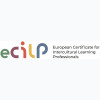Make sure your project in research, education, or civil society in the field of digital interculturality becomes better known and check out what projects you can connect to! You can search for projects by name, date, place, keywords and add your own project.
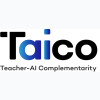
TAICo Teacher-AI Complementarity
University of Continuing Education Krems
The project addresses a pressing challenge at the intersection of education and technology: how to ethically and effectively integrate Artificial Intelligence (AI) into educational settings to complement and enhance the teaching profession. Funded by the EU Horizon program, this initiative spans six countries: Austria, Estonia, Finland, Germany, the Netherlands, and the UK
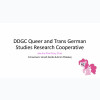
DDGC Queer and Trans German Studies Research Cooperative (aka the Pink Pony Club)
Ervin Malakaj
,
Jonah Garde
The DDGC Queer and Trans German Studies Research Cooperative is an anti-fascist, anti-capitalist academic collective committed to challenging structures of oppression and advancing critical scholarship and teaching on sex, gender, sexuality, and identity within German Studies (broadly conceived). This cooperative serves as a radical intellectual and organizing space for scholars at all career stages, teachers, activists, and artists who resist hegemonic frameworks and seek to produce transformative knowledge and solidarity by sharing resources, supporting each other’s work, and building community within a field that has been historically underrepresented and marginalized by the academy. In the face of global fascism, anti-feminism, anti-trans, and anti-queer violence, the co-op seeks to provide an infrastructure for marginalized voices in German Studies to work collectively, support one another, and develop scholarship that actively resists reactionary forces in both academia and society. The cooperative’s scope is expansive, centering queer and trans perspectives within the study of German-speaking contexts, including Germany, Austria, Switzerland, as well as diasporic and postcolonial German contexts. The cooperative encourages diverse methodologies, from literary analysis and archival research to ethnographic and digital humanities and social science approaches with an explicit commitment to decolonial, anti-racist, feminist, and intersectional queer and trans frameworks.
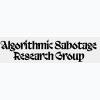
Algorithmic Sabotage Research Group (ASRG)
x7kekmg7@proton.me
The Algorithmic Sabotage Research Group (ASRG) is an ongoing, conspiratorial, aesthetico-political, practice-led research framework focused on the intersection of digital culture and information technology. # It examines the multifaceted manifestations of artistic activism and its role in exposing, critiquing, disrupting and countering the encroachments of algorithmic systems of power, control, and exploitation, with the objective of strengthening, promoting, and defending human rights values and fundamental freedoms by offering interdisciplinary pathways to empower the public. Research Questions # The Algorithmic Sabotage Research Group (ASRG) operates within a rigorously interrogated conceptual framework that foregrounds the in-depth analysis of the critical notion of “algorithmic sabotage.” This concept functions as a foundational lens for the methodical formulation of artistic-activist and prefigurative techno-political strategies and aesthetics, aimed at contesting, subverting, and dismantling necropolitical technologies that perpetuate entrenched structural injustices, entrench algorithmic authoritarianism, and intensify the deleterious impacts of unchecked technosolutionism. The research is organized around the following core inquiries: How can the intersection of “algorithmic sabotage,” art, and activism be strategically harnessed to disrupt and challenge the dominance of pervasive, regulatory technological paradigms, while cultivating subversive aesthetic and political counter-narratives? In what ways does technological disobedience, conceptualized through the critical concept of “algorithmic sabotage,” enable the emergence of novel modalities of collective agency, the design and development of digital tools, and the creation of transformative, militantly content-driven interventions that challenge and disrupt hegemonic technological infrastructures? Given that refusal constitutes a critical form of technopolitical praxis, what are the broader implications of “algorithmic sabotage” as a mechanism for dissent and resistance within political, social, and artistic contexts, particularly in challenging systemic power structures? How can “algorithmic sabotage,” within the context of artistic activism, inform and empower self-organized, technologically-mediated strategies that advance justice, promote accountability, and facilitate the achievement of equitable and inclusive societal outcomes?
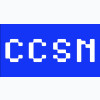
Content Creator Scholars Network (CCSN)
keywords: creator culture, industries and economies; creative labor and resistance, platform infrastructure, governance and moderation, identity, inequality, marginalization, social media cultures and communities, algorithms, AI
Aurélie Petit
,
Brandon Harris
,
Brooke Erin Duffy
,
Carolina Are
,
Christine H. Tran
,
Christopher J. Persaud
,
Colten Meisner
,
Jess Rauchberg
,
Jessica Maddox
,
Krysten Stein
,
Sarah Edwards
,
Sophie Bishop
,
Tom Divon
,
Zari A. Taylor
,
Zoë Glatt
CCSN is an interdisciplinary community hub for scholars studying content creators and economies from a wide range of disciplines and approaches, such as Media and communications, sociology, digital humanities, politics, anthropology, and critical cultural studies. Our work spans themes including, but not limited to, industries and economies; creative labor and resistance; platform infrastructure, governance and moderation; identity, inequality and marginalization; social media cultures and communities; algorithms and AI. CCSN’s primary goal is to cultivate an international community of members to promote additional perspectives and studies in the field of creator culture. Members also produce educational resources, participate in journalistic interviews, and organize events and spaces for creator studies research. In addition to critically examining content creators and economies, CCSN strives to create and contribute to dialogue with industry to address concerns of power and in/equalities when possible.

Internet History Initiative
location(s):
Cambridge (United States of America)
Jim Cowie
The Internet History Initiative explores decentralized, community-driven approaches to the preservation, curation, and analysis of Internet History: the accumulated corpus of historical network measurements from many sources that document the day-to-day evolution of today’s global Internet over many decades. Internet History at this level is not about Web content in particular; it’s about the history of the infrastructure that supports all Internet applications, starting with fundamental infrastructure (BGP routing, DNS, traceroute measurement) and ascending over time to capture the emergence of the Internet’s overlay networks (CDNs, P2P content, privacy-protecting services, federated social media). Why do we need it? The Internet underpins much of modern civilization, yet researchers from beyond the Internet’s core technical community have never had good access to well-interpreted data about the evolution of the regional and global Internet over time. If we can put quantitative tools and timeseries into the hands of the relevant researchers who study (for example) violence, employment, public health, and political science, we can help tackle bigger research questions collaboratively.
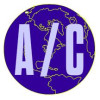
Against Catastrophe Research Group
location(s):
Dresden (Germany)
Orit Halpern
The aim of this project is to interrogate the concept of catastrophe – how it is defined, analyzed, and deployed – and anti-catastrophic practices in an attempt to envision alternatives to our present. It does so through an edited volume, art and design commissions, and offline and online exhibitions that explore catastrophe and anti-catastrophe in practice around the globe. The focus throughout is on how novel thinking and practice in design, architecture, and technology can open possibilities for more equitably, democratically, and sustainably surviving a catastrophic world, but also expanding epistemic horizons beyond such apocalyptic thinking. The collaborators on the project include international scholars, artists, and journalists, and the project is committed to open collaboration and new partners and participants.
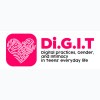
Di.G.I.T - Digital practices, Gender, and Intimacy in Teens' everyday life
location(s):
Padova (Italy)
University of Padova
Teens use digital media to explore and experiment with intimacy and their gender identities, develop interpersonal relationships and community connections and access identity-specific resources and services from the relative safety of anonymity. The aim of this project is to analyse how Italian teens (re)define their understanding of gender and intimacy by engaging with digital media and incorporating it into their daily lives.
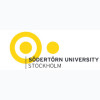
Digital Vulnerabilities in Automated Welfare
location(s):
Huddinge (Sweden)
Anne Kaun
This interdisciplinary research project explores the digital vulnerabilities inherent in the algorithmic automation of welfare services across education, healthcare, social services, and media sectors, with a particular focus on Sweden. Despite promises of efficiency and improved decision-making, the reliance on algorithmic systems introduces new risks, including cyber threats and biases that undermine citizen trust. This research seeks to comprehensively understand and address these challenges through comparative empirical analysis and theoretical development. Through a mixed methods approach combining policy analyses with the help of computational methods, citizens data journeys, a survey and in-depth interviews, the project aims to establish baselines for digital vulnerabilities across welfare domains, contribute to theoretical frameworks for understanding the digital welfare state, and provide guidelines for policymakers to mitigate risks and uphold public values. By addressing key research questions regarding the nature, implications, and causes of digital vulnerabilities, this project aims to shed light on the broader societal impact of algorithmic governance in the welfare state and advance scholarly and public understanding in this critical area. The research environment furthermore includes an ambitious outreach programme involving the National Library and short animation films to popularize the research findings.
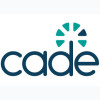
Civil Society Alliances for Digital Empowerment (CADE)
DiploFoundation and expert organisations from different regions
he Civil Society Alliances for Digital Empowerment (CADE) is a project co-funded by the European Union. Civil society organisations (CSOs) have been integral to the development and evolution of the internet. They contribute significantly to technology, open-source software, and frameworks, playing a pivotal role in shaping global norms related to internet governance and digital policy. CSOs are also instrumental in advocating for an open, free, and secure internet, supporting principles like net neutrality, privacy protection, and freedom of expression. However, despite their significance, CSOs face barriers that hinder their impactful engagement in IG processes. Limited voice in discussions and processes: CSOs encounter financial, social, and political challenges to significant participation in digital policy and rights discussions. Fragmentation in approach and priorities and lack of access to global forums pose significant obstacles. Lack of knowledge and capacity: Many CSOs lack the knowledge and capacity to engage effectively in international IG forums. Bridging the gap between the digital aspects of their work and engaging in IG processes is a significant challenge. Lack of participation from the Global South (GS): Even in open forums, CSO participation is often skewed towards the Global North. This imbalance hinders diverse voices and perspectives in crucial discussions. Our four-year project, kickstarted in January 2024 in collaboration with ten diverse organisations, works to overcome these challenges and enhance the capacity of CSOs in IG processes, including in standard-setting forums. The project has three main objectives: Increased capacity of CSOs for meaningful advocacy Increased engagement of CSOs in global, regional, and national IG Forums Strengthened cooperation between CSOs in the Global North and South.
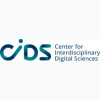
Computational Social Science Research Group
location(s):
Dresden (Germany)
Center Synergy of Systems (SynoSys)
,
Center for Interdisciplinary Digital Studies (CIDS)
,
University of Technology Dresden
We are the research group „Computational Social Science“ within the Center Synergy of Systems and we work empirically on topics of the (causal) mechanisms between democracy and online platforms, the psychology of digital propaganda and on methods of natural language processing,
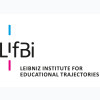
Research Group "Education in a Digital World" | Leibniz Institute for Educational Trajectories
location(s):
Bamberg (Germany)
Cordula Artelt
,
Maria Klose
,
Philipp Handschuh
The Director's research group investigates the advancing digitalization of the society as well as the resulting challenges and opportunities for teaching and learning processes within and beyond educational institutions. The individual prerequisites of learners and teachers, the institutional framework conditions and the insights of learning psychology are taken into account. Our research focuses on digital media as means of acquiring competences and digital media as a subject of education. While the first topic focuses on the potential of new learning methods and practices (also with regard to non-formal and informal learning), the second explores the prerequisites for using digital media in a responsible manner.
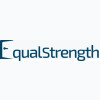
EqualStrength research project
location(s):
Dublin (Ireland)
Geary Institute for Public Policy
EqualStrength is a Horizon Europe project funded by the European Union. This research project investigates cumulative and structural forms of discrimination, outgroup prejudice and hate crimes against ethnic, racial and religious minorities. EqualStrength is led by a consortium of ten European research institutions. Ethnic, racial and religious minorities experience discriminatory behaviour and prejudicial attitudes in multiple life domains, which accumulates across the life course. This continuous exposure perpetuates minorities’ subordinate position across generations. The main contribution of EqualStrength is to investigate cumulative and structural forms of discrimination, outgroup prejudice and hate crimes against ethnic, racial and religious minorities from a cross-setting and intersectional perspective. We deploy innovative, targetted and effective methods, which include field experiments, population-level secondary survey data, meso-level policy analysis and targeted data collection to include the perspective of minority groups who directly confront discrimination.
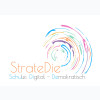
StrateDie (Strategische Digitalisierung für eine inklusive Schulentwicklung)
keywords: Digital tools, education, language proficiency, collaboration, agency, participation, discrimination, school, teacher training
location(s):
Jena (Germany)
Luisa Conti
,
Virginia Signorini
The StrateDie project (Strategic Digitalization for Inclusive School Development) aims to strategically utilize digital tools to ensure the best possible learning experience for all students. The focus is on integrating digital technologies to promote key aspects such as language, communication, and heterogeneity within schools. The project emphasizes the development of multimedia impulses that support teachers in creating and moderating participatory and cohesion-building learning processes. It works closely with teachers, school leaders, school social workers, and expert advisors throughout both the research and design phases. By adopting an inclusive approach, the project seeks to create a school environment where digital tools serve not only as technical aids but also as catalysts for an equal and supportive learning experience. The StrateDie project is supported by the Thuringian Ministry of Education, Youth, and Sports, as well as the Thuringian Ministry of Migration, Justice, and Consumer Protection, highlighting the political and societal relevance of the initiative.
Capacities and Competencies in Dealing with Hate Speech and Hostility towards Science (KAPAZ)
Alexander von Humboldt Institute for Internet and Society
The collaborative project Capacity and Competence in Dealing with Hate Speech and Hostility towards Science (KAPAZ) aims to provide new empirical evidence on the prevalence of hostile and derogatory behaviour towards scientists in Germany. It also develops institutional support and infrastructure to actively protect researchers from attacks online and offline. Aims and services of the project network Currently, there is a significant deficit in understanding the extent of hostility towards science in Germany and many other countries. Furthermore, at both the individual level for researchers and the institutional level for scientific institutions, there is a lack of effective resources, counter-strategies and measures to deal with these attacks. For this reason, the KAPAZ consortium is gathering a substantial knowledge base and comprehensive empirical evidence on scientific integrity. It will also strengthen institutional competencies and capacities to deal with hostility through practical support and educational resources.
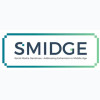
SMIDGE (Social Media Narratives: Addressing Extremism in Middle-Age)
location(s):
Copenhagen (Denmark)
,
Leicester (United Kingdom)
,
Prishtina (Kosovo)
,
Milano (Italy)
,
Pyla (Cyprus)
De Montfort University
,
Kosovar Centre for Security Studies (KCSS)
,
UCLan Cyprus
,
University of Copenhagen
,
University of Milan
SMIDGE is an EU-funded Horizon Europe research project exploring how online narratives shape public discourse among middle-aged individuals. We examine the appeal of harmful social media content and its influence on this demographic, aiming to foster a more informed and resilient digital environment. Our goal is to equip media professionals, security officers and policymakers with valuable insights and evidence-based recommendations through reports, e-courses, policy briefs and engaging counter-narrative content.
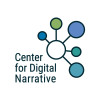
Center for Digital Narrative
location(s):
Bergen (Norway)
University of Bergen
Humanities-driven research in electronic literature, games studies, digital culture, and computation to advance understanding of digital narrative. CDN is a Norwegian Centre of Research Excellence funded by the Norwegian Research Council from 2023-2033. CDN focuses on algorithmic narrativity, new environments and materialities, and shifting cultural contexts. We will investigate how the interactions of human authors with non-human agents result in new narrative forms, how the materiality of digital narratives have changed, and how cultural contexts are reshaping the use and function of digital narrative.
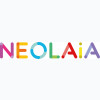
NEOLAiA research group Narrating (Hi)Stories in Decentering Europe
Beatriz Valverde
,
Cécile Chapon
This NEOLAiA transnational and interdisciplinary research group explores hybrid narrative forms as tools for creating meaningful hermeneutical patterns tied to lived experiences, memory, and, following Donna Haraway, situated knowledges, particularly in relation to historical crises and disruptions. Through this analysis, we aim to: - Reinterpret the concept of Europe using boundary-transcultural and counter-factual narratives. - Address themes such as: Hegemony, Migration, Decolonisation - Foster a more decentered understanding of Europe.
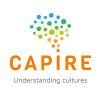
Cultural Adjustment Project for Improving Relations in Europe (CAPIRE)
location(s):
Enschede (Netherlands)
University of Twente
The CAPIRE project aims at creating a free digital intercultural training tool and by this means to enhance intercultural competences and an open mindset among students and teachers at institutions of higher education, as well as businessmen, professionals and private persons. The CAPIRE project aims at exchanging knowledge between the partners and jointly developing an innovative method: building a digital training tool that is called a Culture Simulator (or Culture Assimilator). This tool challenges students, businessmen and private persons with realistic intercultural situations on the work floor which they have to solve. It provides them with explanations and further cultural background information. With this (digital) tool we can provide university teachers with an easy method of introducing students to real cultural differences. Our experience is that students like to solve real-life situations more than deal with abstract theories. We expect that this tool will not only raise the knowledge about but also the interest in this important subject, both among teachers and students.
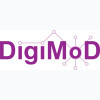
Research Group: "Dynamics of Digital Mobilization"
location(s):
Berlin (Germany)
Annett Heft
,
Barbara Pfetsch
The research group investigates the logics and interrelationship of digital information infrastructures, (transnational) mobilizations in networked digital publics, the dynamics of diffusion and manipulation of information under conditions of automation and algorithmic control, and the quality of public debates in Europe and on an international scale.
Data Stories project
location(s):
Maynooth (Ireland)
Rob Kitchin
The Data Stories project focuses critical attention on the underlying evidence base for planning and property activity. Planning and property data are a key to how cities are understood and managed. They inform government policy, shape public perception, and guide billions of euros of investment relating to land use and development, public and private housing, homelessness, commercial real estate, and infrastructure. Yet, relatively little close, critical attention has been paid to such data beyond some technical considerations related to data access, coverage, quality and interoperability. The Data Stories project will address this lacuna, undertaking a five year programme of research in order to examine the data ecosystem, politics, praxes and power operating within the planning and property domains.
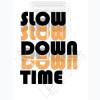
Slow Down Time
keywords: Digital Poetics, Artificial Intelligence, Prompt Engineering, Midjourney, Archive Fever
Adam Brown
,
Carly Sheil
,
Geert LOVINK
,
Henri van Noordenburg
,
Ingo Petzke
,
Jack Latimore
,
James Carey
,
Jen Webb
,
Jennifer Perkin
,
Lani Motiekaitis
,
Lev Manovich
,
Maisy Goodwin
,
Michelle Hall
,
Mitch Goodwin
,
Raul Posse
,
Ron McBurnie
,
Ruth Gardner
,
Sally Breen
,
Sarah-Mace Dennis
,
Sean Lowry
,
Sean Redmond
,
Tyne Sumner
,
Wajeehah Aayeshah
,
Wendy Haslem
The Slow Down Time project is an aesthetic and technical investigation of the procedural outcomes of generative AI routines as both standalone works of visual culture and speculative practice of Large Language Models (LLM). As an exercise in new media curation, the assemblage operates as both a performative and conceptual response to LLM black-box processes in the form of a slow-media / slow-synthesis art intervention. The archive documents the dialogue between the text-to-image service Midjourney and a network of twenty-three prompt authors. Intentionally meditative the intention was to catalogue fragments of the curatorial dialogue enabling contemplation within latent diffusion spaces. Large Language Models (LLM) are trained on gigabytes of text-image pairs, a form of annotated archive scraped from the Internet and dutifully, if not slavishly, labelled by humans. Slow Down Time is an attempt – using curatorial and literary methods – at a conceptual response to that archive.
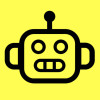
Civics of Technology Project
Allie Thrall
,
Autumm Caines
,
Charles Logan
,
Dan Krutka
,
Erin Anderson
,
Jacob Pleasants
,
Marie Heath
,
Michelle Ciccone
,
Natalie Milman
,
Phil Nichols
,
Punya Mishra
,
Sharla Berry
The Civics of Technology (CoT) project aims to empower students and educators to critically inquire into the effects of technologies on their individual and collective lives. We conduct research, develop curriculum, and offer professional development. Our work seeks to advance democratic, ethical, and just uses of technology in schools and society.

DISCO Network
keywords: digital technology, race, disability, sexuality, gender
location(s):
Ann Arbor (United States of America)
André Brock
,
Catherine Knight Steele
,
Lisa Nakamura
,
Rayon Fouché
,
Remi Yergeau
,
Stephanie Dinkins
A collaborative, intergenerational research group of scholars dedicated to analyzing digital technology, race, disability, sexuality, and gender. The network comprises of six laboratories across five universities (University of Michigan, Northwestern University, The University of Maryland-College Park, Stony Brook University, Georgia Institute of Technology), each of which stands alone and a network node to write, talk, and think about the past, present, and future of technology, Blackness, Asianness, disability, and liberation. The DISCO Network is supported by the Mellon Foundation.

KIDS4ALLL
keywords: e-learning, multilingual, citizenship, transformative education, key competences, buddy-system, EU-project
location(s):
Jena (Germany)
Klara Räthel and many others
,
Luisa Conti
KIDS4ALLL project has been granted in the frame of the Horizon2020 Work Program SC6 entitled ‘Europe in a Changing world – inclusive, innovative and reflective societies’ and with particular reference to topic 5 that focused on integration challenges of migrant children in educational contexts. The KIDS4ALLL learning method draws on knowledge acquisition skills training and attitude transfer to convey lifelong learning competences as a whole within a collaborative and co-creative learning process. As a response to the educational needs of children, in particular of migrant children, and of educators as pathfinders for continuous lifelong and life wide learning, the project is grounded on three Key Inclusive Development Strategies (KIDS) towards LifeLongLearning (LLL), which represent the specific objectives of the project. Main output of the project: https://learn.kids4alll.eu/
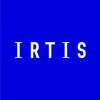
IRTIS - Interdisciplinary Research Team on Internet and Society
location(s):
Brno (Czech Republic)
Masaryk University
IRTIS: Interdisciplinary Research Team on Internet and Society is a research department at the Faculty of Social Studies, Masaryk University, Brno, whose main scope of research is the use of information and communications technology and its impact on individuals and society. To cover the topic in all its breadth and complexity, people from many disciplines are involved in the research. We mainly use the perspectives of psychology, sociology, communication, media studies, and informatics. The main research fields of IRTIS include: • ICT and well-being • Online aggression and cyberbullying • Social interaction with new people online • Parental mediation • ICT and health •Excessive use of the Internet • Internet safety
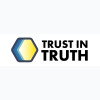
Trust in Truth: Digital Literacy in a Post-pandemic Time
location(s):
Neustadt (Germany)
Dr. Wolfgang Ressmann
How to increase the professional competences of youth workers on digital literacy? The answer to this question found partners from Germany, Estonia, Greece, France, Italy and Spain. They have decided to create a curriculum and an easy-to-use Web-app based on experiential learning. Funded by Erasmus+ Programme, the “Trust in Truth: Digital Literacy in a Post-pandemic Time” project aims at advancing both the professional and personal development of youth workers and final beneficiaries – young people. It will support also capacity building of partners’ organisations in the line with the Digital Education Action Plan (2021-2027). The project activities provide useful and practical youth-friendly information for navigating the internet during a time in which it is becoming more and more difficult to discern truth and stay ‘cyber-safe’. The project will also contribute to the validation and recognition of competencies gained through non-formal and informal learning.
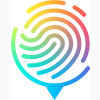
ReDICo
keywords: Research, digital interculturality, internet studies, postdigital, social media
location(s):
Jena (Germany)
,
Potsdam (Germany)
,
Germersheim (Germany)
Anna Finzel
,
Carmen Pereyra
,
Fergal Lenehan
,
Luisa Conti
,
Lymor Wolf Goldstein
,
Milene Oliveira
,
Roman Lietz
ReDICo (“Researching Digital Interculturality Co-operatively”), financed from November 2020 until October 2024 by the German Federal Ministry for Education and Research (BMBF) within the program “Kleine Fächer – Zusammen Stark“ (Small Subjects: Strong together), retains both research and strategic goals. The scientific examination of intercultural practices and discourses within digital spaces and their influence upon issues such as identities, group social cohesion and cultural change, remains at its centre. Coupled with this is the strategic aim of strengthening Intercultural Communication as an academic subject with a positive social influence, at both national and transnational levels.
Self assessment instrument on competences in intercultural business contexts. Languages Dutch, English, German, Italian, Polish Head: SIETAR Deutschland Partners: Intercultural Business Improvement b.v. (NL), University of Tilburg (NL), assist international GmbH (Germany), Centrum Wspierania Edukacji i Przedsiębiorczości CWEP (Poland), LABC (Italy) Associated: Fernuniversität Hagen (Germany)
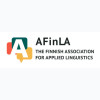
Digital Discourse and Interaction | Finnish Association for Applied Linguistics
location(s):
Helsinki (Finland )
Finnish Association for Applied Linguistics
This research network aims to bring together researchers, teachers and students interested in all aspects of digital and computer-mediated communication. Our group’s interest lies in many closely-related areas, including but not limited to: examining group structure, norms, behaviour and language usage across all digital platforms for social networking interaction and discussion, e.g., WhatsApp, Twitter, Instagram, Facebook, and Reddit; looking at multimodal and multimedia content including videos, images and text and intertextual links between them; affinity spaces, relational work and communities of practice; (im)politeness, rudeness and hate speech; and political discourse. Our research is not limited to any single language. This group will act as a hub for people in this area of interest to meet both socially and for research activities, participate in conferences, collaborate, and share ideas. We also intend to organise specialised conference symposia. We aim to be a friendly and welcoming group; members can participate at whatever level of activity they are comfortable with and we encourage students of any level to join.
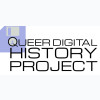
Queer Digital History Project
Avery Dame-Griff
The QDHP is an independent community digital history project documenting pre-2010 LGBTQ digital spaces online. Our current projects include: A catalog of early LGBTQ online communities An archive of transgender-related Usenet newsgroups Interactive maps of TGNet, one of the first international transgender-specific BBS networks Primary documents from early communities, covering the mid-1980s to the late 2000s.
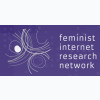
Feminist Internet Research Network
Association for Progressive Communications (APC)
The Feminist Internet Research Network (FIRN) focuses on the making of a feminist internet, seeing this as critical to bringing about transformation in gendered structures of power that exist on- and offline. Members of the network undertake data-driven research that provides substantial evidence to drive change in policy and law, and in the discourse around internet rights. The network’s broader objective is to ensure that the needs of women, gender-diverse and queer people are taken into account in internet policy discussions and decision making. FIRN is a collaborative and multidisciplinary research project led by the Association for Progressive Communications (APC), funded by the International Development Research Centre (IDRC).
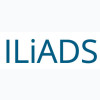
ILiADS (Institute for Liberal Arts Digital Scholarship) Network
location(s):
Bryn Mawr (United States of America)
Bryn Mawr College
LiADS provides a week-long space in which interdisciplinary, interdivisional partners can work on projects that push against the boundaries of digital scholarship in the liberal arts. If you’ve spent any time with us in the past, you know that the personal and professional relationships built at ILiADS stretch far beyond that week of focused work. You know that we care about our students’ roles in our research as much as we care about our students’ own research agendas. ILiADS is more than an Institute, it is a community of practice that places the emphasis on the “community.”
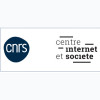
"Digital materialities" working group of the Center for Internet and Society (CIS)
location(s):
Paris (France)
Center for Internet and Society (CIS)
This working group intends to highlight all the forms that materialities, matters and materials associated with the social worlds, industrial sectors and socio-technical arrangements of the digital worlds, which will also be presented in terms of their spatial and territorial anchoring. Open to multidisciplinary exchanges, this working group aims to bring together all the human and social sciences (sociology, anthropology, history, geography, political science, etc.), while mobilizing contributions from other research fields interested in the study of digital materialities: computer science, chemistry, physics, geology, electronics, and materials science and engineering. The working group also wishes to open the discussions to the plurality of audiences concerned by these themes: activists, artists, industrial actors, elected officials, workers, journalists.
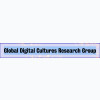
Global Digital Cultures Research Group
location(s):
London (United Kingdom)
King's College London
How does the digital world look from non-Western perspectives? How do people around the world produce, appropriate, adapt, repurpose and resist digital technologies that originate from a handful of Western and East Asian countries? How do local practices of engagement with the digital circulate regionally and around the world, and how do they change during their travels? These are some of the questions that we ask in the Global Digital Cultures Research Group, approaching them from different disciplinary and methodological traditions, and focusing on different countries and regions, but also on global phenomena and their local articulations.
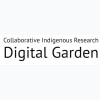
Collaborative Indigenous Research Digital Garden
location(s):
Toronto (Canada)
Tkaronto CIRCLE Lab
We are pleased to present the Collaborative Indigenous Research (CIR) Digital Garden. This is an initiative led by Dr. Eve Tuck and Graduate Student Researchers in the Tkaronto CIRCLE Lab, with the sincere guidance of our Advisory Board. The Digital Garden is designed to bring together two fields of research: participatory research and Indigenous research. Given that these fields have their own distinct methodologies, methods, approaches to study and theories of change, we created the Digital Garden as a virtual visiting place to bring these fields in conversation with each other. To show the possibilities and capabilities of the site, our team has crafted profiles of nearly 200 different Collaborative Indigenous Research projects to create the Digital Garden. But this is only meant to get us started. With the launching of this site, we do not think of the Digital Garden as a complete and finished project, but rather as the beginning. Community and university-based researchers are encouraged to add their own projects, especially projects that share results outside of typical academic publication. We invite all Collaborative Indigenous Research practitioners to contribute to defining and advancing the field of Collaborative Indigenous Research.
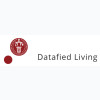
Datafied Living Project
location(s):
Copenhagen (Denmark)
Stine Lomborg University of Copenhagen
The project studies contemporary digital infrastructures and experiences of self-tracking and other forms of person-based tracking across key contexts of everyday life to understand how datafication shapes possibilities for human flourishing and what it means to live a good and meaningful datafied life. The research team conducts a range of empirical studies of the uses of tracking in personal life, in work and organizational life, and in the institutions of the welfare state to better understand the social implications of the pervasive datafication of daily living.

Digital Ethnography Collective
keywords: online culture, Internet/platforms/social media, digital technologies, ethnography
Branwen Spector
,
Zoë Glatt
Invites scholars at all levels to join for regular public lectures, events and workshops. Welcomes those interested in online culture (Internet/platforms/social media), and the ethnographic study of digital technologies. The aim of the group is to establish a global community of scholars of digital ethnography and to work through challenges in this growing subdiscipline.
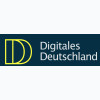
Digitales Deutschland | Monitoring zur Digitalkompetenz der Bevölkerung
Achim Lauber
,
Anja Hartung-Griemberg
,
Cornelia Bogen
,
Dagmar Hoffmann
,
Kathrin Demmler
,
Kerstin Heinemann
,
Laura Cousseran
,
Laura Sūna
,
Niels Brüggen
Ziel des Projekts „Digitales Deutschland | Monitoring zur Digitalkompetenz der Bevölkerung“ ist es, Grundlagen für die Kompetenzförderung der Gesamtbevölkerung angesichts der Digitalisierung zu schaffen. Digitales Deutschland bereitet Studien und Fachliteratur in einer Datenbank auf und erarbeitet weitere empirische Studien und Expertisen. Das Projektmagazin „kompetent“ beleuchtet aktuelle Debatten und Begriffe – verständlich und kompakt. Seit 2020 liegt darüber hinaus ein besonderer Schwerpunkt auf dem Themenbereich Künstliche Intelligenz.
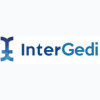
Intergedi research project for the study of digital discourse in English as part of academic and professional practices
location(s):
Zaragoza (Spain)
based at the University of Zaragoza
InterGedi is a group of researchers devoted to the study of digital discourse in English as part of academic and professional practices, taking varied theoretical and methodological approaches. Current project: SciDis exploring verbal and non-verbal mechanisms and strategies used by scientists to recontextualise and adapt scientific expert digital communication in English for diversified audiences.
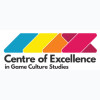
Centre of Excellence in Game Culture Studies
Tampere University
,
University of Jyväskylä
,
University of Turku
The Centre of Excellence in Game Culture Studies is a joint project between researchers from the Tampere University, University of Turku, and the University of Jyväskylä. Across these institutions, over 30 researchers from the humanities, social sciences and technical sciences are engaged in exploring topics related to the research themes of the centre.
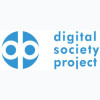
Digital Society Project
Brigitte Seim
,
Dan Pemstein
,
Steven Wilson
,
Valeriya Mechkova
The Digital Society Project (DSP) aims to answer some of the most important questions surrounding interactions between the internet and politics. We fulfill this aim by providing high-quality, publicly available, data describing the intersection between politics and social media in countries around the world. While there is great demand for such data, reliable measures of key indicators, with wide global and temporal coverage, are largely unavailable. Our cross-national data cover topics such as: • online censorship • polarization and politicization of social media • disinformation campaigns • coordinated information operations • foreign influence in and monitoring of domestic politics. • candidate social media presence
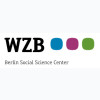
Research Group Politics of Digitalization
location(s):
Berlin (Germany)
WZB Berlin Social Science Center (Wissenschaftszentrum Berlin für Sozialforschung)
The WZB research group “Politics of Digitalization” undertakes conceptual and empirical research to understand how this conflictual and dynamic interplay shapes digital societies. Thee group’s research programme studies digitalization in relation to the evolution of democracy, statehood, and regulation, such as: changing forms of political self-determination in times of digital transformation disinformation and democratic backsliding digital sovereignty and digital geopolitics artificial intelligence and the capacity of effective governance changing and newly emerging regulatory paradigms in the public and the private sector, e.g. regarding digital platforms practices and boundaries of surveillance in democratic societies digitalization of the state and public administration The group employs qualitative and quantitative methods and draws on theoretical approaches from political science, sociology, communication and media studies, regulation and law. Its geographic scope is both national and transnational, focusing on Europe and beyond.
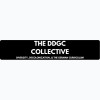
Diversity, Decolonization, & the German Curriculum (DDGC) Collective
Ervin Malakaj
,
Regine Criser
Diversity, Decolonization, & the German Curriculum (DDGC) is a scholarly collective and forum for transnational and transdisciplinary German studies. Members of the collective recognize that oppression persists today around the world and commit to teaching and scholarship in the service of ending oppression. Routinely, this oppression expresses itself as intersectional violence against people, based upon Racialization: through racism, anti-Blackness, colorism, ethnicization, settler practices, Indigenous erasure, and white supremacy; Regimes of embodiment: through normative sex, gender, sexuality, ableism; Elite social distinctions: through class, caste, educational credentialing, deskilling, neoliberal competition, and extreme meritocracy; Regimes of expression: through language, accent, native-speakerism, delanguaging, intellectual pedigree; Regimes of civic order: through citizenship, nationalism, status vulnerability, ascriptions of permanence and impermanence; anti-Muslim and anti-Jewish fear-mongering; Regimes of deprivation: through wealth, debt, impoverishment, structural precarity, involuntary volunteerism, and coercive entrepreneurial individualism.
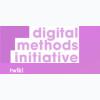
Digital Methods Initiative (DMI)
location(s):
Amsterdam (Netherlands)
Richard Rogers
The Digital Methods Initiative (DMI) is one of Europe's leading Internet Studies research groups. Comprised of new media researchers and PhD candidates, it designs methods and tools for repurposing online devices and platforms (such as Twitter, Facebook and Google) for research into social and political issues. Digital Methods research themes include: Links, likes and other natively digital objects | Websites as archived objects | Engine critique and search as research | Cross-spherical analysis as comparative media studies | National web studies | Wikipedia as cultural reference | Social media data, post-demographics and platform studies | Digital methods for issue mapping | Digital methods theory | Visual media analysis | Alt-tech network mapping
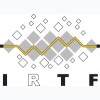
Internet Research Task Force (IRTF)
Internet Architecture Board
The Internet Research Task Force (IRTF) promotes research of importance to the evolution of the Internet protocols, applications, architecture and technology. The IRTF is comprised of a number of focused and long-term Research Groups. These groups work on topics related to Internet protocols, applications, architecture and technology. Research Groups have the stable long-term membership needed to promote the development of research collaboration and teamwork in exploring research issues. Participation is by individual contributors, rather than by representatives of organizations.
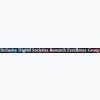
Inclusive Digital Societies Research Excellence Group
location(s):
Brighton (United Kingdom)
University of Brighton
The Inclusive Digital Societies Research Excellence Group focuses on digital media technologies in contexts of society and health, connecting a network of researchers and artists who share expertise in society's responses and adaptations of technology. Members focus on how we, as a society, co-create and interact with our digital worlds, and how this impacts our lives. This includes, but is not limited to, how digital technologies affect our health, our social and psychological wellbeing, and our learning processes. Our work also tackles digital inequalities: we actively mobilise creativity and innovation to build an inclusive digital society. The interdisciplinary nature of this work means that it includes experts in social sciences, humanities, education, technology, arts, and more. As a result, we draw on a diverse range of methodologies and promote trans-disciplinary collaboration and critical enquiry. We believe that investigating and innovating our digital worlds is best achieved through collaborative innovation with communities, user groups in human-centred design processes and stakeholders in co-design methods. We work with an extensive network of partners, including public sector organisations, community and activist groups, arts organisations, and creative and digital industry partners. Our conversations are currently focused around three themes, cutting across those themes is our shared interest in inclusive practice and digital inequalities: Human-centred AI; Digital health and wellbeing; and Digital learning.

Netzwerk kritische Migrations- und Grenzregimeforschung (kritnet)
Labor für kritische Migrations- und Grenzregimeforschung am Insitut für Kulturanthropologie / Europäische Ethnologie Georg-August-Universität Göttingen
An der Schnittstelle zwischen Wissenschaft, Aktivismus und Kunst eröffnet das “Netzwerk kritische Migrations- und Grenzregimeforschung” (kritnet) einen interdisziplinären und reflexiven Wissensraum, in dem kritische Perspektiven auf Migrations- und Grenzregime erarbeitet, diskutiert und weiterentwickelt werden.
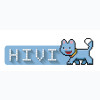
HIVI - a history of online virality
location(s):
Esch-sur-Alzette (Luxembourg)
University of Luxembourg
Entitled “A history of online virality” (HIVI), this project (2021-2024), which is led Valérie Schafer at the Luxembourg Centre for Contemporary and Digital History (C²DH) / University of Luxembourg and supported by the Luxembourg National Research Fund (C20/SC/14758148), aims to reveal, historicise and communicate about this intangible experience and the heritage of viral content. HIVI will develop a historical framework that informs the analytics of virality and rumours and improves our understanding of current phenomena, some of which are strongly related to past digital cultures. Building on the legacy of past Web cultures as a means of shedding light on current trends, it will explore the history of virality by combining a general narrative with case studies dedicated to precise viral phenomena and their dissemination through time and space, in order to better contextualise them. Drawing on a broad corpus of born-digital heritage, which is maintained online and in Web archiving institutions, HIVI also provides an opportunity to test and deepen digital methods and to refine digital hermeneutics.
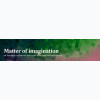
Research initiative "Matter of imagination - on discourse, narratives, and tropes of (un)desired techno*social"
location(s):
Groningen (Netherlands)
,
Berlin (Germany)
Anya Shchetvina
,
Nathalie Fridzema
Technologies are never merely material but are actively made sense of through phenomena such as discourse and imagination. As sci-fi books and movies, interface metaphors or blueprint texts, different forms of imagining shape how we make sense of past, present and future innovations. Deconstructing such discourses and positioning them in historical contexts gives important insight into the materiality, meaning, and morality of technology. We treat "Matter of imagination" as an open-format working group that attempts an inventorisation. We focus on collecting, structuring and commenting on existing frameworks and track ongoing developments in this field. The main focus is on complex digital networked technologies (internet, its offsprings, precedents and alternatives) with occasional steps to related or overlapping fields.
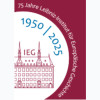
Research group "Digitality in Historical Research: Methods and Research Data"
location(s):
Mainz (Germany)
Leibniz Institute of European History (IEG)
"Digitality of historical research" is a transversal field of work at the IEG. Here, the use of digital tools and methods is trialled at the IEG in explorative and collaborative forms of work and the development of a digital hermeneutics is promoted through the integration of IT methods with basic historical principles. At the same time, the research group also has an impact on the work of the goups of "Society" and "Religion" in order to support source criticism, heuristics and analyses with digital tools and processes. The Europa forum addresses the digital transformation and the associated limitations and delimitations as a fundamental question of historical European research. A variety of formats, such as informal events, open consultation hours and individual counselling sessions, serve the exchange and further training on digital processes and tools within the IEG.

